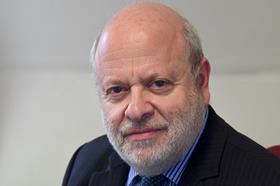It was the best of times, it was the worst of times for the City of London’s reputation last week.

Two reports were published, one praising to the skies the City of London’s role as a global legal centre, and the other condemning that same legal centre for undermining the integrity of important domestic institutions and weakening the rule of law. Which is right?
The best of times was reflected in CityUK’s annual report, called ‘Legal excellence, internationally renowned: UK legal services 2021’. CityUK is an industry-led organisation representing UK-based financial and related professional services, and its report sends a reader skipping through a paradise of success. The figures it quotes cannot fail to soften the hardest legal heart.
Here is a sample:
- in 2019, legal services contributed £29.6 billion to the UK economy;
- there are over 200 foreign law firms from around 40 jurisdictions with offices in the UK, and all of the world’s top 50 law firms have an office in London;
- in 2021, the revenue of the UK’s largest 100 law firms grew by 4% to £28.8 billion, a figure which has more than doubled over the past decade;
- the UK ranks second globally for legal services in fee revenue, behind the US, accounting for a third of Western Europe’s legal services revenue, and around 7% of the world’s;
- in 2020, legal services’ trade surplus was £5.6bn;
- in 2020/21, parties from 75 countries used our commercial courts;
- the largest international law firms in London have between 45% and 65% of their lawyers abroad;
- legal services employ 365,00 people, two thirds of whom are outside London.
We are told in the introduction that ‘UK legal services are recognised across the world for their quality and excellence. The UK is the world’s preferred destination for businesses to resolve international commercial disputes. English common law is by far the most popular choice of governing law for cross-border contracts’, and so on. All this is true, and is a badge of honour for our profession.
But, in the same week, Chatham House, the well-known independent think-tank, published a report painting a very different picture of the same part of the profession. Its report was called ‘The UK’s kleptocracy problem’, sub-titled ‘How servicing post-Soviet elites weakens the rule of law’.
Readers of both reports in the order I have given them will fall from a rightly celebrated heaven to an uncomfortable hell, with Chatham House focusing on our old friends, money and reputation laundering.
Of money laundering, the Chatham House report says that ‘capable and expensive lawyers (hired by members of transnational elites or their advisers) defeat or deter the regulators’ often weak and under-resourced attempts to prosecute politically exposed persons’ (PEPs). It cites a case involving a solicitor who failed to identify the daughters of the President of Azerbaijan as PEPs, and was fined by the Solicitors Disciplinary Tribunal as a result.
It reserves similar ire for SLAPPs - strategic litigation against public participation, or, as it describes them, ‘cases taken not for their legal merit, but for the effect of silencing a critic by locking them into a long legal struggle’. It condemns the provision of aggressive reputation management services by UK lawyers, including libel actions and quasi-defamation cases (those based on data protection and privacy), brought against journalists and researchers.
The report says: ‘By leveraging the threat and cost of legal action to prevent publication of damaging information in the first place, law firms in the reputation management sector thus offer more than just the right to a legal defence.’ Names are given, and a journalist quoted about the intimidation involved in deploying endless resources against ordinary individuals and businesses.
Chatham House concludes that the situation is materially and reputationally damaging for the UK’s rule of law.
So which is the true global legal centre, the promoter of excellence or the rule of law underminer? Of course, both exist simultaneously in the same place, like a scientific improbability stumbled upon in a lab. It is just a shame that there is not a single report which combines both aspects, because then difficult questions might be faced as to how excellent law firms can at the same time be seen as engines of wrongdoing.
The present government is facing its own problems related to allegations of corruption and truth-telling, and so is unlikely to be the one which will put this difficult position right.
The road to correction is not easy. I suggest it should start by three actions: root-and-branch review of the existing and unworkable AML laws; proposals for anti-SLAPP legislation in the UK (as is being proposed in the EU; and the Law Society beginning a dialogue with the large law firms in the City of London about the problems raised in the Chatham House report. It will be a hard road.
Jonathan Goldsmith is Law Society Council member for EU and international matters and a former secretary general of the Council of Bars and Law Societies of Europe. All views expressed are personal and are not made in his capacity as a Law Society Council member, nor on behalf of the Law Society































4 Readers' comments